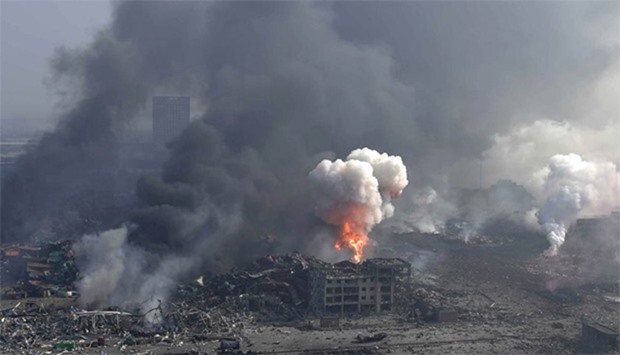On the eve of the Aug 12 Tianjin anniversary, state media reported China's latest deadly industrial accident, an explosion at a power plant in the central province of Hubei that killed at least 21 people and injured five.
The explosions at Tianjin, the 10th busiest port in the world and not far from the capital, Beijing, were big enough to be seen by satellites and register on earthquake sensors.
A government report on the disaster said hazardous materials had been improperly or illegally stored on site in the northern port city.
The report, carried by state media in February, said 49 people had been detained over the blasts, which caused losses of $1 billion.
Former firefighter Zhang Mengfan remembered the costly battle against the warehouse blaze that killed eight colleagues.
A year on, Zhang has posted photographs and stories of his fallen colleagues on his social media account to keep their memories alive.
‘I felt so sad,’ the 22-year-old said. ‘It felt like I was dying, so I tried to do something for them to try and deal with the pain. Even now I'm still working on that.’
Many of the 165 killed and hundreds injured in the blast lived in apartment buildings near the chemical warehouse. Some survivors moved away, but remain haunted by that night's events.
‘Every time I think about what happened, every image is so clear,’ said one resident who declined to be named. ‘It looked like a war, really just like a war.’
A year later, excavators are still working to clear rubble from the disaster site. A green tarpaulin covers an area the size of several football fields where residents fear the soil has been contaminated by chemicals spread by the blaze.
Anger over safety standards has grown in China after three decades of swift economic growth marred by incidents ranging from mining disasters to factory fires.
China has vowed to improve industrial standards, but environmentalists say they fear oversight weaknesses persist, including an opaque production process for hazardous chemicals.
‘Even though temporarily, we've seen a process of much greater tightening of regulations, what is needed are comprehensive and effective restraints,’ said Cheng Qian, a chemicals expert with the environmental group Greenpeace.

